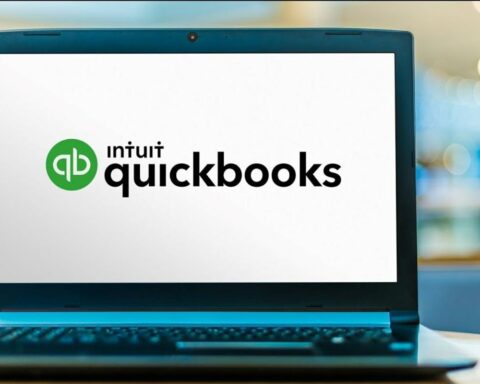The need for external borrowings can arise at any time, especially if you are in a business. As a result, you can opt for debt financing.
It can be in the form of bank loans or other borrowings from financial institutions. On the other hand, equity financing is also available to support you during a fund crisis.
Often, people are confused about which mode of financing is better. Returns and duration are two crucial factors that contribute to this.
Therefore, you have to clearly understand the features of different types of finances to get more benefits. Choose the potential option that helps your business grow.
Quick funding from reliable resources must be your primary target. I have brought a comparative study on both debt and equity funding to help you understand their specialities.
Please stay on the page to learn about the difference between Debt financing Vs. Equity financing. Make suitable decisions for a better future for your business.
Meaning of Debt Financing

The growth of any business depends largely on capital funds. However, it can sometimes become challenging to run the organization due to a lack of funds.
Debt Financing comes into the picture during those times. You can borrow money from various sources, but it should be reliable. Do not fall into the trap of fraudsters.
Debt financing refers to a loan that you take from a bank or any other financial institution. The lenders usually decide the repayment schedule every month.
The loan is given at a particular interest rate that you have to repay at a future date. The due date for paying the instalments is pre-fixed as per the policy of the respective organization.
However, in addition to loans, debt funding is also a method for dealing in debt bonds or instruments. It implies that you can raise capital through the sale of debt instruments.
It comes with an interest rate and is required to be paid off later. Therefore, debt funding can be a good source of liquid capital.
Meaning of Equity Financing

Equity Financing is primarily related to your business’s capital. Generally, companies have equity shares of different face values.
They need money for long-term growth or to pay short-term bills. Raising capital by distributing equity shares is known as Equity Financing.
The owners of a company invest funds in the business and then convert them into equity. Moreover, a company’s worthiness depends on the share price. Other stakeholders of the organization invest in these shares to earn good returns on them.
It is the liability of the company to pay off the equity shareholders when there is a profit. These are small units of the capital funds that the owners or promoters of the company invest.
Difference Between Debt Financing Vs. Equity Financing
The main difference between Debt financing Vs. Equity financing is their nature. I include a comparative study of the two schemes in the following section.
Nature
Debt Financing is nothing but a conventional loan for your business. However, it always comes with a fixed interest rate attached. Therefore, at the time of repayment, you have to pay both the principal and the interest amount by a pre-determined date.
On the other hand, Equity Financing is subject to market risks and demand. It is part of the owner’s capital funds, broken down into small units. Companies raise funds by selling these shares.
However, it does not contain a fixed rate of interest. The company is liable to pay the equity shareholders according to the profits at the end of the year.
Every share has a face value and a paid-up value, based on which the shareholders will receive the payment.
Restrictions on Activities
Many times, debt instruments come with various conditions. They can even impose restrictions on a company’s activities. This can prevent investing in particular schemes according to the specific limitations.
Furthermore, most creditors will expect a low debt-equity ratio. Hence, if the company’s overall position is favourable, it has more chances to get smooth debt funds in times of need.
In the case of Equity, no such limitation is there. It is in the hands of the company and the business partners how to pay off the equity shareholders.
The primary focus will be to increase the face value of the shares to create an attractive financial position for the investors.
Control
Debt finance lenders do not control the business of the borrowers. This means that after repaying the loan, you will not have any further connection with the lender.
Furthermore, loan payments are not subject to sudden fluctuation like equity. The interest of the debt funds is also tax-deductible. Therefore, you can get several tax benefits through these funds.
However, the shareholders of a business have full control over the affairs of your company. Some of them also have voting rights depending on the amount shares they hold.
Therefore, the owners of the business are answerable to the lenders of equity financing regarding any operation of the business. Moreover, they can also show interest if there is a loss in the business.
Payment Policy
If you have higher debt financing, the fixed expenditure for the business will be relatively high. Similarly, you are bound to pay the fixed rate of dividends to the debt instrument holders.
It is irrespective of the financial results of the company. This means that even if your company suffers from a loss, you are liable to pay the pre-decided amount to the debt instrument holders.
This compulsion is not present in the case of Equity Financing. If your business is not earning profits, you do not owe anything to the equity shareholders.
Furthermore, it is also the responsibility of the shareholders to share the loss equally. This sharing holds for the liquidation too.
Sources and Types of Loans
Both debt financing and equity financing have various sources. The company’s creditworthiness will determine how much debt funds it can acquire. However, acquiring equity financial is a less complicated task.
In this case, your financials should be attractive with incredible products. This will impress the investors more, resulting in greater profits in the long run.
The sources of both types of financing are as follows:-
Debt Financing
- Personal loans
- Term loans
- Credit cards (business)
- SBA loans
- Invoice factoring, etc.
Equity Financing
- Crowdfunding
- Venture capital firms
- Initial Public Offering
- Corporate investors
- Angel investors, etc.
Risk Factor
Are you in a dilemma as to whether debt financing is riskier than equity funds? Let me clarify that the risk factors of both financing types depend on your business condition. If the profits are low, the debt funds can create undue pressure on you.
However, if the profits are very high, you can go for equity financing. The company has to keep its investors pleased. Therefore, it can be risky if the equity shareholders expect too high returns from the profits.
The risk for debt funds is comparatively low when there are more profits. You have to pay only the fixed rate of interest and not more than that.
FAQ
What is the common preference of most investors- debt or equity?
Generally, investors like to have debt funds due to the fixed return at the end of a period.
Can I have a combination of equity and debt financing in my company?
Yes. You can determine the needs of funds and make a good portfolio consisting of both equity and debt funds.
What will happen if I fail to repay the debts on time?
If you fail to repay the debts on time, the lender will mark your account as NPA (Non-Performing Asset). They will provide a report for this to the credit rating agency. It can reduce your CIBIL score.
Conclusion
After analyzing various factors of debt financing and equity financing, I can conclude that both schemes come with specific advantages. At the same time, you have to consider the limitations of both. Moreover, the difference between Debt financing Vs. Equity financing shows you the true picture of the business.
If you are at the baby stage of the business, you may start it with special startup loans. This will come under Debt funds. With a little growth, it will be essential to seek support from equity financing.
The startups should limit the debt amount till they reach a certain stage. A strong credit score is one of the requirements for fetching debt finances. However, businesses can easily go for more debt when it is at a later stage.
The funding will depend upon the repaying capacity of the organization. Hence, equity can be a steady funding source for any type of business, small or large. The business should only strive to improve its profitability.






